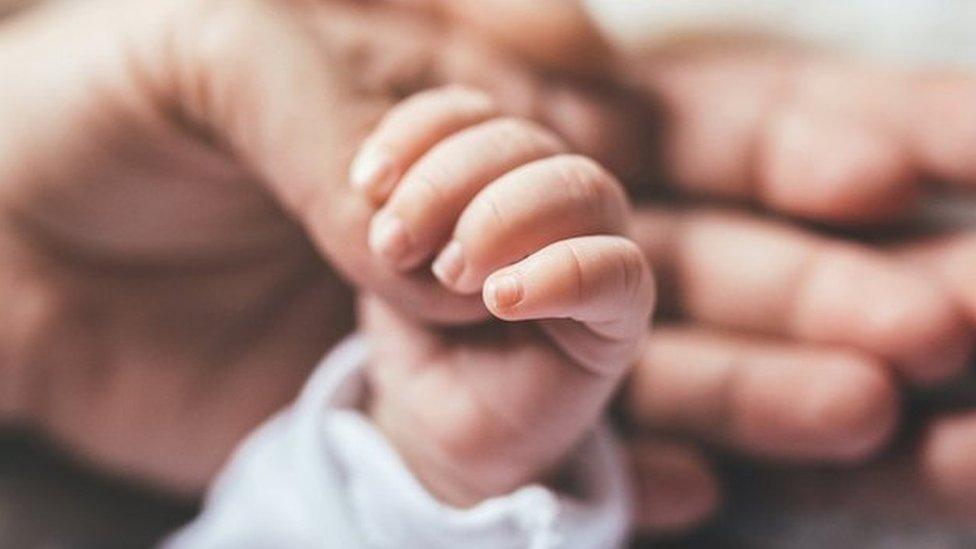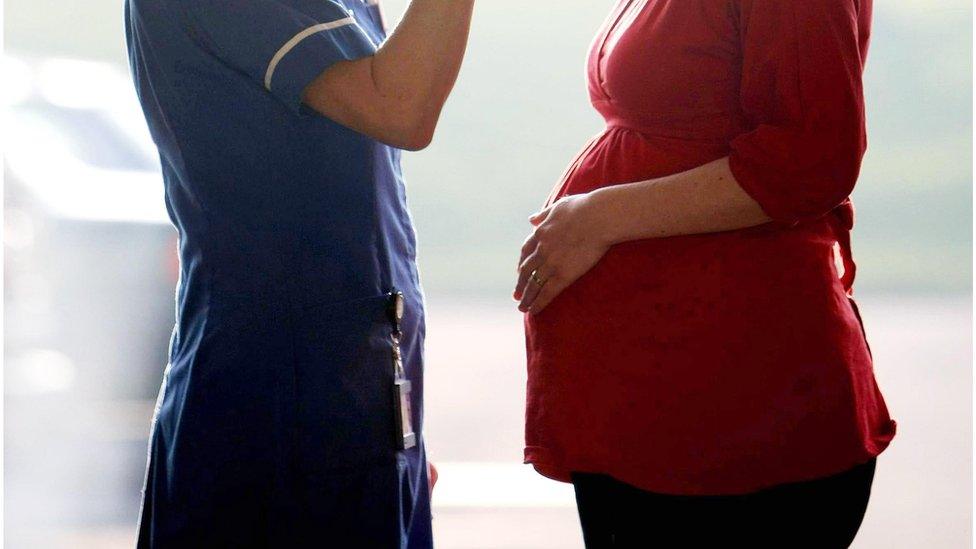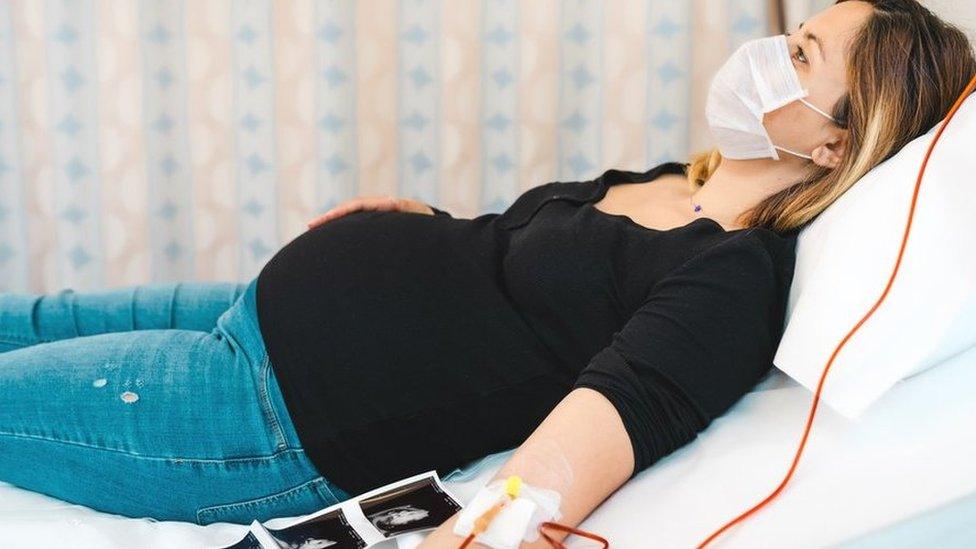Covid: Restrictions caused some women pregnancy stress, study says
- Published

The pregnancy study was between 2020 and 2021
Some pregnant women suffered additional stress under Covid restrictions due to not having their partners present at appointments, a study has found.
Researchers from Aberdeen and Dundee universities interviewed about 3,000 people and maternity staff from June 2020 to July 2021.
They found 89% of mothers-to-be attended antenatal appointments alone, with 67% feeling uncomfortable at this.
However overall, care during labour and after the birth was well received.
The research, external, published on the Public Health Scotland website, was aimed at understanding the impact of the changes in maternity care during the pandemic on patients and staff.
After giving birth, 73% of the women interviewed said they should have been able to have their partner or a supportive person with them more often in the postnatal ward.
Researchers said many respondents noted that restrictions around partners being with them after the birth had felt excessive, and the rationale for the restrictions not well communicated.
The study also revealed Covid restrictions affected connections between women and healthcare workers, with 40% saying that telephone, rather than face-to-face, appointments stopped them from building a good relationship with midwives and doctors.

Overall, care during labour and after the birth, whether at home or in a ward, was well received by the vast majority of women who answered the survey.
A total of 86% of participants rated their care during labour as excellent or good, with 76% rating their care after birth as excellent or good.
'Great anxiety'
Appointments at home were well received, according to the study, with postnatal care at home described as being family-centred.
Some participants commented on some midwives in particular going "out of their way" to provide personalised support to women.
Dr Mairead Black, of the University of Aberdeen, who jointly led the study, said: "One of the clearest disadvantages of the restrictions centred around women not being able to have a partner with them as much as they would have liked.
"Many women told us that knowing in advance that their birth partner would not be able to accompany them to scans or in early labour led to great anxiety, as well as when it actually happened.
"The need to physically distance and replace in-person visits with phone or video calls has led some to feel they had a lesser relationship with their doctor or midwife, and staff too have reported a frustration and conflict between what they were allowed to do and what they would normally do to support a pregnant woman and her partner."
Dr Black added: "Having said that, overall, many women were complimentary of the service they received and some aspects of the maternity service that were forced to change in order to meet Covid requirements have actually been well received by women and staff alike and may well remain, in some form, post-Covid."
- Published13 January 2022
